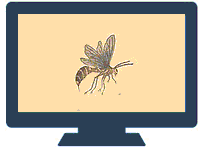Entomology, Department of

Department of Entomology: Distance Master of Science Projects
Date of this Version
2023
Document Type
Project
Citation
Master of Science Degree Project, Department of Entomology, University of Nebraska-Lincoln, 2023
Abstract
The consumption of insects (entomophagy) is a well-practiced phenomenon in many parts of the world. Western societies, including the US, are among the few places that do not participate in this practice. However, entomophagy has the potential to ease nutritional burdens, globally. While many may believe that nutritional deficits are a relic of more economically challenging times or a problem specifically linked to the low economic countries, the truth is that any area can face this problem. This was made clear in the US during the coronavirus lockdown with an estimated doubling in food insecurity associated with a lack of access to free or reduced school lunch programs (Allen et al, 2020). There are a number of areas where nutritional deficits are noted; one such area is hospital inpatient nutrition. Many inpatients suffer extensively from nutritional deficits. Entomophagy could reduce the nutritional deficits found in US hospitals by adding important nutrition back into approved menus. Entomophagy adds protein content and vitamins and minerals to the inpatient diet, as well as an ease of access. Creating an environment of acceptance by patients and healthcare providers to a program that is inclusive to entomophagy would be key to an extensive use in the US, but would lead to improved outcomes for patients. Mealworm protein in particular is ripe for inclusion as it has a high protein content and a high tolerability for most people.
Included in
Dietetics and Clinical Nutrition Commons, Entomology Commons, Health Policy Commons, Medical Nutrition Commons, Nutritional and Metabolic Diseases Commons


Comments
Copyright 2023, Caryl Showalter